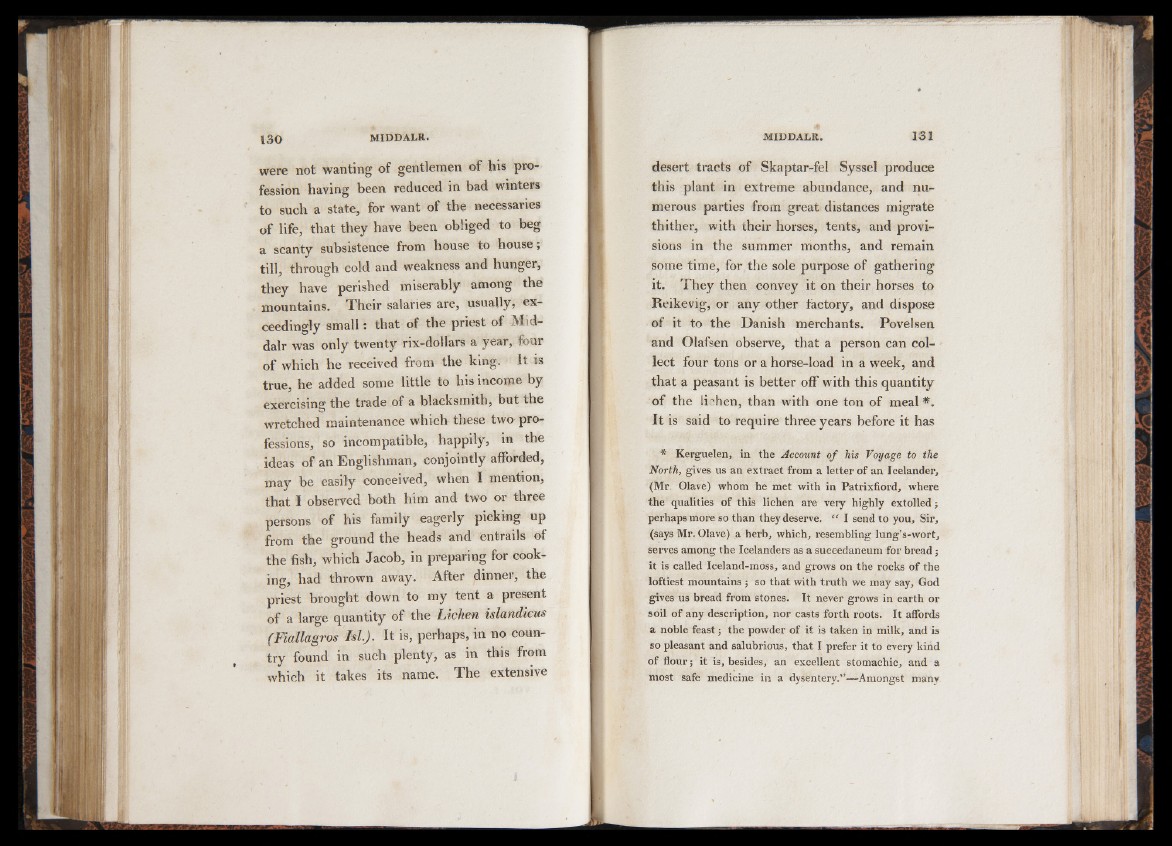
were not wanting of gentlemen of his profession
having been reduced in bad winters
to such a state, for want of the necessaries
of life, that they have been obliged to beg
a scanty subsistence from house to house;
till, through cold and weakness and hunger,
they have perished miserably among the
mountains. Their salaries are, usually, exceedingly
small: that of the priest of Mid-
dalr was only twenty rix-dollars a year, four
of which he received from the king. It is
true, he added some little to his income by
exercising the trade of a blacksmith, but the
wretched maintenance which these two professions,
so incompatible, happily, in the
ideas of an Englishman, conjointly afforded,
may be easily conceived, when I mention,
that I observed both him and two or three
persons of his family eagerly picking up
from the ground the heads and entrails of
the fish, which Jacob, in preparing for cooking,
had thrown away. After dinner, the
priest brought down to my tent a present
of a large quantity of the Lichen islundicus
(Fiallagros Isl.). It is, perhaps, in no country
found in such plenty, as in this from
which it takes its name. The extensive
desert tracts of Skaptar-fel Syssel produce
this plant in extreme abundance, and numerous
parties from great distances migrate
thither, with their horses, tents, and provisions
in the summer months, and remain
some time, for the sole purpose of gathering
it. They then convey it on their horses to
Reikevig, or any other factory, and dispose
of it to the Danish merchants. Povelsen
and Olafsen observe, that a person can collect
four tons or a horse-load in a week, and
that a peasant is better off with this quantity
of the iichen, than with one ton of meal *.
It is said to require three years before it has
* Kerguelen, in the Account o f his Voyage to the
North, gives us an extract from a letter of an Icelander,
(Mr. Olave) whom he met with in Patrixfiord, where
the qualities of this lichen are very highly extolled;
perhaps more so than they deserve. “ I send to you, Sir,
(says Mr. Olave) a herb, which, resembling lung’s-wort,
serves among the Icelanders as a succedaneum for bread;
it is called Iceland-moss, and grows on the rocks of the
loftiest mountains ; so that with truth we may say, God
gives us bread from stones. It never grows in earth or
soil of any description, nor casts forth roots. It affords
a noble feast j the powder of it is taken in milk, and is
so pleasant and salubrious, that I prefer it to every kind
of flour; it is, besides, an excellent stomachic, and a
most safe medicine in a dysentery.”—Amongst many